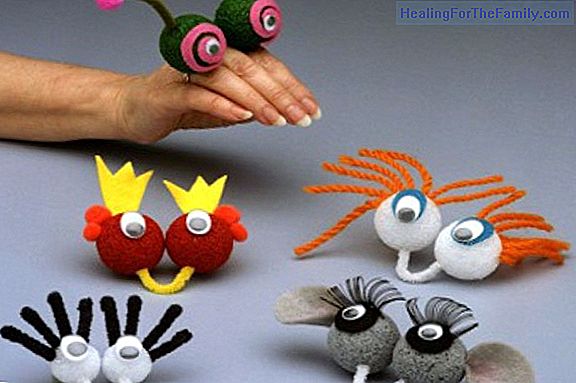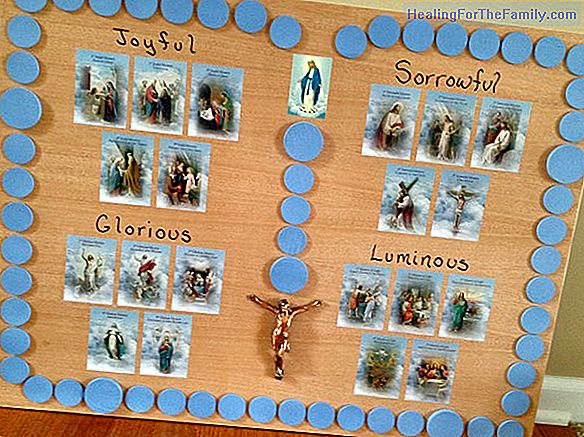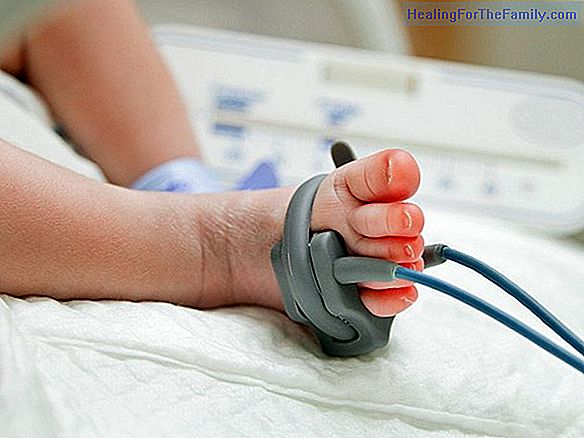The child with epilepsy at home and at school
The integration of the child with epilepsy at home and at school begins with understanding the disease. Childhood epilepsy involves the recurrence of seizures, called epileptic seizures, which affects approximately 1 percent of children. It is manifested by seizures that can appear as generalized se
The integration of the child with epilepsy at home and at school begins with understanding the disease. Childhood epilepsy involves the recurrence of seizures, called epileptic seizures, which affects approximately 1 percent of children. It is manifested by seizures that can appear as generalized seizures characterized by disordered activity of arms and legs accompanied, in general, by loss of consciousness and perhaps by tongue bite and urine emission.
But how does all this affect the family and children with epilepsy? To answer all these questions, GuiaInfantil.com has interviewed Francisca Lozano García, President of the Spanish Association of People Affected by Serious Epilepsy.
Tips to help children with epilepsy at home and at school

How to know if a child has epilepsy before a crisis occurs?
Sometimes, there are crises that are very subtle and difficult to perceive and detect, which are the so-called 'crisis of absence'. The child remains motionless with the knowledge lost and, sometimes, with the fixed gaze, only lasts a few seconds, people who are not used to seeing this type of crisis can confuse them with daytime reverie or with an oversight, like As a result of all this, low school performance can be given.
How does epilepsy affect a child in families?
The diagnosis of epilepsy produces a change in the family structure, breaks all the schemes, illusions and projects. Reduces the attention of other children, there is a refusal to have more children, changes the dynamics of the couple in terms of relationships, roles ... Family habits are modified, schedules, activities, projects ... Questions and difficulties arise in the communication of the problem to other relatives and how to make them participate. There is also social and family isolation, since you do not have time for family and friends (you live by and for your child).
Can the family prevent epileptic seizures?The family is the key element in the evolution of the patient with epilepsy, therefore favorable conditions must be created to prevent crises such as:
- Teach them to take medication daily
- Sleep at least 8 hours a day.
- Control your fever.
- Create an adequate environment of emotional stability.
- Make use of seat belts in cars.
- Providing a good preventive education against drugs and alcohol.
- Wear a helmet when using a motorcycle or bicycle, etc.
Can television and video games trigger an epileptic seizure?Nowadays televisions and computers with flat screen do not produce flashes, so they do not affect the crisis, although it is advisable to take certain precautions:
- Keep a safe distance from the screen / monitor
- Control The time of exposure and pause regularly so that the sight rests.
- Avoid excessive blinking, reduce the brightness of the screen and avoid being exposed to this type of stimulus in rooms with poor lighting.
What is the recommended diet for children with epilepsy?This diet is used in children with difficult-to-control epilepsy. It consists of foods with a high level of fats, a minimum of proteins and no carbohydrates. To make the diet correctly you need a dietitian and a detailed control of the menus, calories and fluids. All the ingredients have to be weighed to the gram for the diet to work.
What should we do at home in the face of a child's epileptic crisis?
- Keep calm.
- Prevents the patient from hurting himself.
- Take away objects around you.
- Put something soft under your head.
- Do not put anything in your mouth. No - Do not subject him or try to revive him.
- Do not give him anything to drink or eat.
- Do not perform artificial respiration.
- Tell the doctor if the crisis lasts more than 5 minutes or repeats.
What recommendations should children with epilepsy follow at school?
- Informing the center correctly of his illness and the side effects of pharmacological treatments.
- Not rejecting him.
- Teaching them skills related to their illness.
- Talking about epilepsy naturally.
- Responding to questions related to your illness.
Marisol Nuevo.
Copywriter












